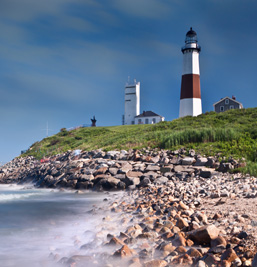CLARK, NEW JERSEY — Mollie Hartman Lustig, Partner, McLaughlin & Stern, and Chair of the Firm’s Cannabis Practice Group, is available to comment on President Joe Biden’s decision to grant pardons to those convicted of minor violations of federal marijuana laws.
On October 6, President Biden announced he made good on his campaign promise to expunge thousands of federal convictions for simple marijuana possession and that he would take steps to decriminalize cannabis use. “While I agree that this is the most extensive White House action to date as it relates to U.S. cannabis policy on the federal level, President Biden’s call for pardons of all those convicted at the national level of simple possession of marijuana will actually affect very few people because of the extremely low number of people incarcerated at the federal level for only possession,” Ms. Lustig says.
The president is also looking to reclassify marijuana, which is considered a Schedule I drug under the 1970 Controlled Substances Act. Schedule I drugs are considered the most dangerous, having “no currently accepted medical use and a high potential for abuse,” according to the Act. Currently, marijuana is classified in the same category as heroin and Ecstasy and, according to the president, considered to be more dangerous than methamphetamines and fentanyl.
“The directive of the Department of Health and Human Services and the Attorney General’s office to ‘expeditiously’ review the classification of marijuana as a Schedule I drug is equally important, albeit ripe with administrative hurdles and rule-making obstacles,” Ms. Lustig says.
As part of this strategy, President Biden is calling on all governors to pardon those convicted of low-level possession offenses in their respective states. According to NORML (National Organization for the Reform of Marijuana Laws), 27 states have decriminalized most or all marijuana possession offenses. On April 1, 2022, the House of Representatives passed a bill that would decriminalize marijuana, but the bill was not taken up in the U.S. Senate.
“The president’s call to governors across the country to follow his administration’s lead is promising, but will require further legislation from each state,” Ms. Lustig says. “There remain an unconscionable number of people incarcerated at the state level for activity that is now legal in their states, and a disproportionate number of those people belong to minority groups — unquestionably the largest group affected by the failed ‘war on drugs.’”
For more information about McLaughlin & Stern’s cannabis practice group, call (212) 448-1100 or visit https://www.mclaughlinstern.com/practices/cannabis-practice/.
###
About McLaughlin & Stern
Established in 1898, McLaughlin & Stern is one of New York’s most distinguished law firms. The firm provides a diverse range of sophisticated legal services to businesses and individuals and has particular expertise in corporate, securities, mergers and acquisitions, hedge funds, corporate finance, litigation and alternative dispute resolution, employment law, trusts and estates, real estate, intellectual property, bankruptcy and reorganization, tax, family and matrimonial law, health care law, art law, environmental law, maritime law, international law and other private client matters. McLaughlin & Stern has a roster of over 100 attorneys and offices in New York, New York; Millbrook, New York; Garden City, New York; West Palm Beach, Florida; Naples, Florida; and Westport, Connecticut. For more information, call (212) 448-1100 or visit www.mclaughlinstern.com.




